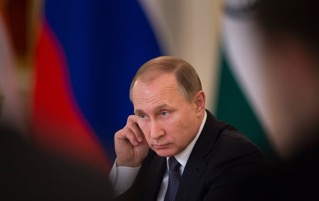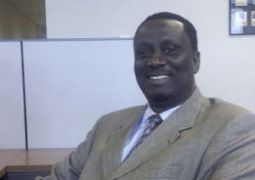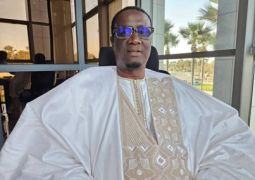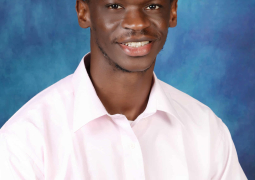
Faced with Russia’s naked aggression in invading Ukraine, followed by a daily stream of brazen war crimes, the world, or at least part of it, is living a Nuremberg moment, pushing the boundaries of the possible.
The ICC’s prosecutor, savvy British barrister Karim Khan, seized the moment right after Russia’s full-scale invasion to get an unprecedented 43 ICC member states, almost all Western, practically overnight to request an investigation in Ukraine. He has made four trips to the country, which he declared “a crime scene,” opened the ICC’s largest investigation ever, and raised unprecedented amounts of earmarked contributions and seconded personnel, again almost exclusively from Western states. But a year into the invasion, as Russian atrocities mounted, everyone was wondering where it would all lead.
Khan’s groundbreaking Putin indictment—the first ever against the sitting leader of a permanent member of the UN Security Council—rewarded that impatience and brought welcome succor to Ukrainian victims. It was also certainly calculated to deflate growing calls for a new special tribunal on Russia’s crime of aggression—a so-called “leadership crime”—which, its similarly Western proponents contended, was the easiest way to hold Putin directly accountable, but which Khan has argued would fragment justice efforts. Khan’s decision to lead with the child transfers, a choice also publicly urged on him by President Volodymyr Zelensky, allowed him to go straight to the top by using Putin’s own interviews and decrees as evidence of his direct responsibility in orchestrating a state policy of taking Ukrainian children. Khan’s expected future Ukraine indictments will presumably reflect the more painstaking business of linking Putin through the chain of command to battlefield-type crimes like bombings of civilian targets as well as massacres and torture chambers.
Russia has predictably dismissed the ICC charges, arguing that the court has no jurisdiction over nationals of nonmember states, and mounting a symbolic prosecution of its own against ICC officials. Former president Dmitry Medvedev threatened to target The Hague with nuclear missiles, telling judges to “look carefully at the sky.”
Russia’s blustery reactions are reminiscent of those in the United States not so long ago—when no American official was even close to being investigated. In 1998, under President Bill Clinton, the US was one of only seven countries to vote against the ICC Rome Statute after failing to win a guarantee that no national of a nonmember state (i.e., Americans) could ever be prosecuted, even for crimes committed on the territory of a member state. Under George W. Bush, Congress passed the so-called “Hague Invasion Act” allowing the president to “use all means necessary and appropriate to bring about the release” of an American or an allied person detained by the ICC. Under Donald Trump, Washington imposed sanctions on previous prosecutor Fatou Bensouda for her timid investigations into Palestine and alleged US crimes in Afghanistan. Even in 2021, when the Biden administration lifted those sanctions, Secretary of State Anthony Blinken said, “We maintain our longstanding objection to the Court’s efforts to assert jurisdiction over personnel of non-States Parties such as the United States and Israel.” The new Nuremberg moment has seemed to banish those qualms, at least temporarily. The US welcomed the Putin warrant, though Russia is also a nonmember state, and Blinken urged ICC members to arrest Putin and his co-indictee Maria Lvova-Belova and turn them over to The Hague. New bipartisan legislation permits Washington to support the ICC’s Ukraine investigation (though the Pentagon is reportedly balking at giving the ICC evidence on Russian war crimes).
International justice is a long game, and no one expects to see Putin in handcuffs unless and until there is a radical change of regime in Russia. Indeed, the main reason that in its 20 years of existence the ICC has never put away a single state official for atrocity crimes is that it can’t get its hands on them. And despite the overwhelming evidence of Russian crimes, if the ICC is seen as the legal arm of NATO, non-Western states, which have remained silent so far on the warrant, may be no more willing to detain or isolate Putin than they were in 2009, when the ICC sought to arrest Sudanese President Omar el-Beshir for genocide in Darfur. Beshir thumbed his nose at the court, visiting dozens of countries, including seven ICC states such as South Africa—which Putin is scheduled to visit in August. South Africa’s foreign minister confirmed the invitation to Putin following the warrant and complained of “double standards.… There are many other countries that have been involved in wars, invasion of territory and killing people, arresting activists and none of them have been called up by the ICC.”
The optics could not have been worse when, just three days after the warrant, Khan took a victory lap of sorts at a London meeting of justice ministers organized by the United Kingdom and the Netherlands to support the ICC’s work on Ukraine. Fewer than a handful of the 40 countries in London were from the Global South, and speakers intermingled their support for Ukraine (an “ally,” noted the Dutch minster) with their pledges of new financial support totaling $4.9 million for the ICC’s work. Amnesty International, among others, has long warned “that the court’s legitimacy risks being eroded by an increasingly selective approach to justice” and that earmarked contributions allow states “to support only those situations which align with their interests,” leaving the court “vulnerable to manipulation by powerful states.” In contrast to the well-funded Ukraine inquiry, ICC prosecutors have often cited limited resources elsewhere, as when Khan “deprioritized” investigations into the Bush administration’s torture program in Afghanistan, and when Bensouda could not advance her probes on Nigeria and Ukraine itself in 2020, despite finding possible crimes against humanity.
When observers talk about ICC selectivity, they most often talk about Palestine, where Israel is credibly accused of apartheid, persecution, and war crimes including illegal settlements. After Palestine requested an investigation in 2015, the court slow-walked the case though procedural hurdles for six years until Bensouda opened a formal investigation in 2021, just months before leaving office. Since then, nothing visible has transpired. As Raji Sourani, director of the Palestinian Centre for Human Rights, who supports the Ukraine probe, has lamented, Khan never referenced the ICC’s Palestine investigation in resource requests and never spoke about the occupied territory as a “crime scene.” He was even silent when Israel shut down NGOs that were providing his office with evidence. Khan’s announcement at the ICC Assembly in December 2022 that he wanted to go to Palestine in 2023 has nevertheless raised some cautious hopes for progress.
Khan has shown that he is willing to break barriers and apply the law to the president of one of the most powerful states in the world, and to do so even when that country is not an ICC member. A harder question may be whether he is willing to confront his main supporters and apply the law to Israeli and other Western-backed officials. Since the Nuremberg tribunal, international justice has always had the taint of “victor’s justice,” which is not applied to the sponsors themselves. Could today’s Nuremberg moment be one to transcend Nuremberg itself?
Reed Brody is a veteran war crimes prosecutor. His latest book is To Catch a Dictator: The Pursuit and Trial of Hissène Habré (Columbia University Press).





